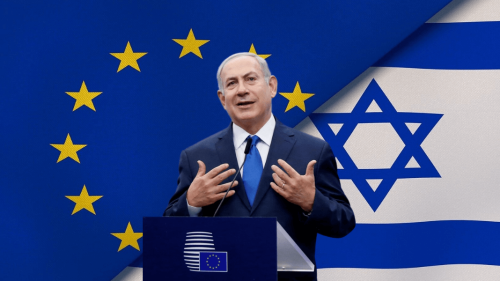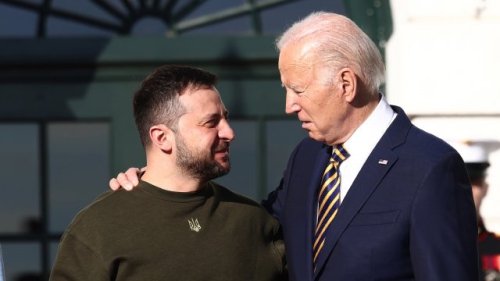France - No to Neo Liberalism
 |
France's unyielding repudiation of the proposed European Union constitution is a resounding reminder that the populace still possesses the power to defy political elitism with all of its economic dogmas; neo-liberalism being one of them.
True, there is a prevailing apprehension among the French regarding free market, neo liberal doctrines, which naturally leads to a decided rejection of globalization altogether, with its undoubted infringement upon the political sovereignty, economic independence and cultural uniqueness of every nation.
But one must also be reminded that it was France that earnestly promoted some form of European unification or another, starting in 1951 with the formation of the European Coal and Steel Community, followed by the signing of the Treaty of Rome in 1957, which in turn, evolved into the Maastricht Treaty (formally the Treaty on European Union) in 1992.
Indeed, France has remained at the forefront of efforts to mould Europe into a truly effective polity. But the May 29, 2005 vote changed so much, despite France's assurances that its commitment to Europe is unmoved.
Several factors have contributed to the growing doubts among the French, which culminated into a solid vote against the constitution, signed by European heads of governments on October 29, 2004, a primary concern simply being the economics of the matter. On May 1, 2004 ten new members, by and large east European countries, were taken into the European fold. Many of these new members suffered shattered economies and rushed to take advantage of the free flow of labor and other economic perks that accompany EU membership. While the move was good news for large businesses, ever eager to reduce overhead costs by employing cheap laborers with meager benefits and little expectations, it was a blow to an already struggling Western European job market.
Traditionally, the French economic system has been one of unconcealed governmental protectionism coupled with socialist ideals regarding the welfare of citizenry, leaving a comprehensible mark on various aspects of French life. The unprecedented one-time expansion of the union and the proposed EU constitution a few months later was a move, as perceived by many, toward unrestrained neo liberal free market policy, the antithesis of the aspirations of most French.
But neo-liberalism and globalization didn't only undercut France's economic distinctiveness; it also threatened the country's political prominence and efficacy.
France has for long seen itself as the centre of a free and independent Europe. It has labored to demonstrate that Europe is no longer an instrument in the US' foreign policy agenda, nor is it a middleman between the US government and its foes, as Britain's Tony Blair has supposedly suggested. Thus, French President Jacques Chirac has toiled to achieve, not simply a united Europe, but a self-determining Europe.
Initially, the Bush administration sought to engineer a rift in the European camp. Its efforts galvanized before and immediately after its invasion of Iraq in March 2003. It envisaged an 'old Europe' and a newer one, with France at the helm of negligible countries, due to their strong anti-war stance.
But that failed miserably, since France's position revived confidence in its government. It fashioned a strongly articulated political stand around which European masses rallied. Without question, it was the most critical and far-reaching European stand against US foreign policy since World War II.
Even though the Bush administration has adopted a cautious position on the unfolding European crisis, Washington has steadily supported the expansion of the EU to include those eligible to become part of the 'new Europe': mostly former communist nations heavily reliant on American aid. By bringing its allies into the fold - with the probable joining of more allies including the ever-willing Romania - the US has aspired to dilute the influence of countries such as France and Germany who, until now, refuse to send troops to Iraq to subdue the growing revolt.
Strangely, in a Washington Times article, entitled, No United States of Europe, Allan Topol mockingly celebrates the French rejection of the EU constitution "for now it's no longer possible that a United States of Europe would rival our own country economically and even militarily."
In fact, this contemptuous and congratulatory tone has dotted the coverage of much the conservative mainstream media in the US.
But what these commentators have failed to appreciate is that a French 'no' is not exactly a victory for the US government and its desire to be uncontested, particularly by a supra-national organization. In fact, if considered correctly, it can be deduced that France's rejection is quite disconcerting. For one, the French populace has reclaimed democracy after it had been hijacked (as is the case in the US) by the government, big business and corporate media. Moreover, neo liberalism has received its greatest blow as of yet, far surpassing the anti WTO uprisings in Seattle and elsewhere. Finally, it proved that France remains a consequential member in the determination of the future of Europe, a notion that is sure to make American neo-conservatives think twice before dismissing France's political prestige and regional, even global import.
But most importantly, a Europe that is not united based on the undermining of the political sovereignty of its member states is likely to harden US Secretary of State Condoleezza Rice's most urgent task of dragging Europe down with it into the costly Iraq calamity. And while Europe ponders very important matters about its future, aspirations, identity and so forth, US foreign policy is likely to remain stagnate in the perpetual quagmire of Iraq, Afghanistan and the incessant desire to take on Iran.
Following talks with visiting EU Commissioner Benita Ferrero-Waldner, EU High Representative Javier Solana and Luxembourg Foreign Minister Jean Asselborn, Rice was blatant in making the link between its need for Europe's absolute support and its dangerous foreign policy.
"It is our view that a strong and united Europe that is able to act as a global partner with the United States will only serve to multiply the forces that are fighting for democracy and freedom and for prosperity across the globe," Rice preached. "We have a big agenda ahead of us - whether it is in the Middle East or in Iraq or in trying to deal with a potential nuclear breakout in Iran. We have a lot ahead of us, and we are going to continue that agenda."
The clarity of the US agenda was met on May 29 with an equally clear French response, redefining Europe's priorities as unequivocally European, not American, coupled with a resounding rejection of neo-liberalism and political marginalization. Democracy has, for now, delivered.
Ramzy Baroud is a veteran Arab-American journalist. A regular columnist in many English and Arabic publications, he is editor-in-chief of PalestineChronicle.com and program producer at Aljazeera Satellite Television.
He is also the editor of the anthology: "Searching Jenin: Eyewitness Accounts of the Israeli Invasion."
To buy "Searching Jenin: Eyewitness Accounts of the Israeli Invasion" CLICK HERE

















